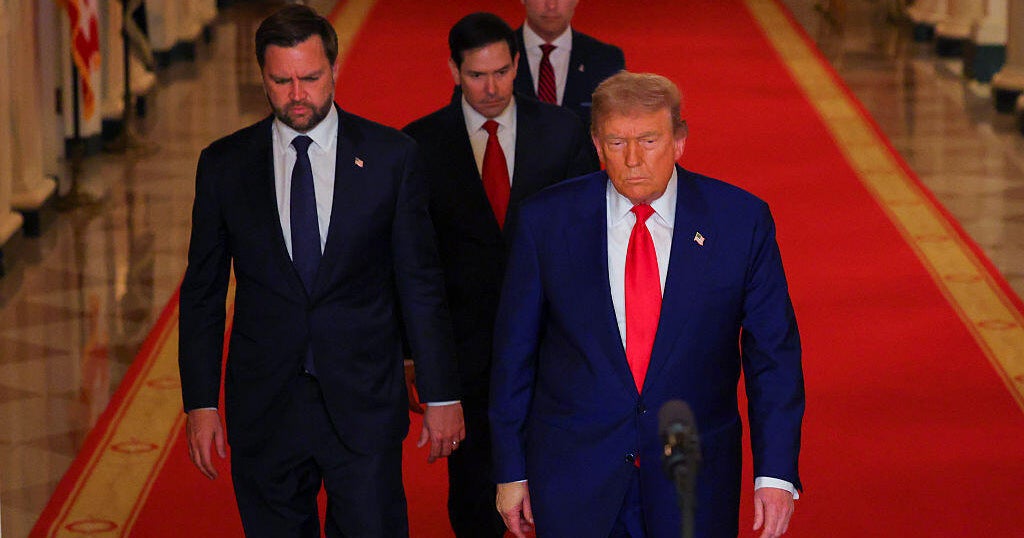This task involves expanding a news article into 1000 words or more. As of the last update, the article summarizes political reactions and legislative actions following air strikes on Iranian nuclear sites ordered by President Trump. Let’s elaborate on the details, background, and implications to meet the required word count.
Amidst Global Tensions, U.S. Strikes Iranian Nuclear Sites, Prompting Legislative Backlash
Over the past weekend, under the direction of President Trump, the U.S. military launched precision strikes on three key nuclear facilities within Iran. This aggressive action has stirred a considerable bipartisan response within the U.S. Congress, with many legislators keen on revisiting and reinforcing the constitutional powers that dictate the declaration of war.
Despite these military actions, a recent announcement of an unexpected ceasefire between Israel and Iran was made, further complicating the legislative push in Congress. House Speaker Mike Johnson, a Republican from Louisiana, expressed skepticism regarding the new developments, suggesting the cessation of hostilities renders the debate somewhat obsolete. “It’s kind of a moot point now, isn’t it?” Johnson stated, undermining the momentum that had been building for a war powers resolution.
The initial authorization for the strikes appears rooted in what the Trump administration perceived as an imminent threat to national security, based on undisclosed intelligence. This led to a swift and unilateral decision to attack Iran’s nuclear capabilities without prior comprehensive briefing to Congress.
However, shortly before the strikes were publicly announced, select members of Congress received brief notifications. House Minority Leader Hakeem Jeffries from New York acknowledged receiving a courtesy call but lamented the lack of detailed explanations or discussions. “What is the administration hiding?” Jeffries questioned, echoing the sentiments of various lawmakers left in the dark.
In response to the U.S. strikes, Iran executed retaliatory strikes targeting a U.S. base in Qatar, further escalating tensions and highlighting the dangers of unilateral military actions without broader congressional and public support. This prompted calls for a more transparent approach from the Trump administration concerning military decisions that could entangle the United States in a more extensive conflict.
As a measure against such unfettered military actions by the Executive, several lawmakers, both Republicans and Democrats, had advanced war powers resolutions in both the House and the Senate. Representatives Thomas Massie (R-Ky.) and Ro Khanna (D-Calif.) spearheaded one such resolution gathering substantial bipartisan support, reflecting widespread congressional concern about entering a conflict without definitive legislative approval.
Democratic Senator Tim Kaine from Virginia introduced a similar resolution in the Senate, emphasizing the urgent need to reclaim legislative oversight over military actions. The Senate Majority Whip, John Barrasso, a Republican from Wyoming, hinted towards a potential vote within the week.
Senate Minority Leader Chuck Schumer also joined the fray, criticizing the administration for its lack of transparency. After Iran’s retaliation, Schumer demanded a classified briefing to fully understand the “threat picture” and the intelligence that justified the initial strikes.
Speaker Johnson, despite having received a classified briefing himself, maintained his stance that the resolutions might not be timely or necessary. “For 80 years, presidents of both parties have acted with the same commander-in-chief authority under Article Two,” he argued, highlighting the historical precedent of presidential military action without prior congressional authorization.
The unfolding scenario presents a significant test of the balance of powers between the President and Congress in matters of military engagement. The ceasefire announcement might temporarily alleviate concerns of further escalation, but it leaves unanswered questions about the future of U.S. foreign policy and its handling of Iran’s nuclear ambitions.
This episode is not merely about a military strike but also about the ongoing struggle for power and control over the United States’ foreign engagement strategies. As Congress debates the future of its war powers, the global watching community remains keen on how America handles its superpower responsibilities.
Indeed, as this dramatic saga unfolds, it raises profound questions about governance, international norms, and the mechanisms of accountability in foreign affairs under the U.S. Constitution. The resolution of this crisis will likely set a significant precedent for both domestic law and international relations discourse.
While the ceasefire might offer a temporary respite from immediate hostilities, the broader implications of these strikes and their legal and political ramifications will reverberate through U.S. politics for years to come.









